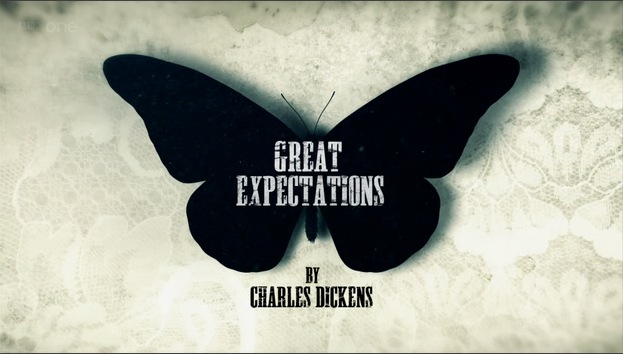I was incredibly impressed with Masterpiece Theater’s recent adaption of Charles Dicken’s Great Expectations. I recall studying the book (the horribly abridged, watered-down version) in school my freshman year of high school, but I could only moderately appreciate at the time the themes and characters. That’s changed.
Perhaps this more a reflection of my current state of mind than any measure of the performance by the actors, but I really feel they captured the struggle Pip had in growing up, coming to grips with the great ambitions and hopes for the future and the reality before him. That process of coming to terms with what life is, what matters most and who I am is something that is fundamental in how I process the world around me. Dicken’s depiction of that struggle in both Pip and Estella resonate with me.
On Managing Expectations
On expectations, Neal A. Maxwell observed,
Correct conduct under stress is more likely when one has correct expectations about life.
To err by having naive expectations concerning the purposes of life is to err everlastingly. Life is neither a pleasure palace through whose narrow portals we pass briefly, laughingly, and heedlessly before extinction, nor is life a cruel predicament in an immense and sad wasteland. It is the middle (but briefest) estate of the three estates in man’s carefully constructed continuum of experience.
“Taking Up the Cross” BYU Fireside, January 4, 1976
Looking around on the subject, I found some additional thoughts collected by a BYU Professor presenting for a university devotional:
Expectations are thoughts or beliefs we have about ourselves, our relationships, and what happens to us in life. They are crucial, as they are the standards or yardsticks by which we judge what happens to us and how satisfied or unsatisfied we are with ourselves and with life. . . . They can lead to depression, anxiety, and a sense of failure. Avoiding these expectations or thoughts we carry around in our heads can change our way of looking at the world and, ultimately, how we feel emotionally. They directly affect whether or not we are happy.
July 14, 2009 BYU Devotional,
All truth is independent in that sphere in which God has placed it, to act for itself, as all intelligence also; otherwise there is no existence (D&C 93:30).
From that starting point of truth comes in our agency and what we choose to do with that truth,
Behold, here is the agency of man, and here is the condemnation of man; because that which was from the beginning is plainly manifest unto them, and they receive not the light (D&C93:31).
Our use of agency doesn’t have a bearing on what truth is, only on how that truth influences us. For example, I might hold whatever beliefs I want about the law of gravity, but that doesn’t mean it doesn’t exist nor my fate be any different if I were to test its influence on me as I walk off the top of a building. That’s where a false paradigm, misaligned expectations can cause stress, hurt or other severe consequences if left unvalidated against truth.
Here’s a list of common cognitive distortions that we should be aware of when we consider how we interpret the world and more importantly truth when it comes our way:
- All-or-Nothing Thinking
- Overgeneralization
- Mental Filter
- Disqualifying the Positive
- Jumping to Conclusions
- Mind-reading
- Magnification/Minimalization
- Emotional Reasoning
- Should Statements
- Labelling/Mislabeling
- Personalization
- Blaming
- Fallacy of Change
- Always being right
List courtesy of Wikipedia: Cognitive Distortion, check it out for example definitions.
All of this has a deep spiritual element that could warrant a separate discussion. But suffice it to say that because we’re dealing with thoughts and feelings, there’s a great deal of honesty with one’s self that is required to assess one’s expectations and perceptions of the world around them.
For as he thinketh in his heart, so is he (Proverbs 23:7).

You must be logged in to post a comment.